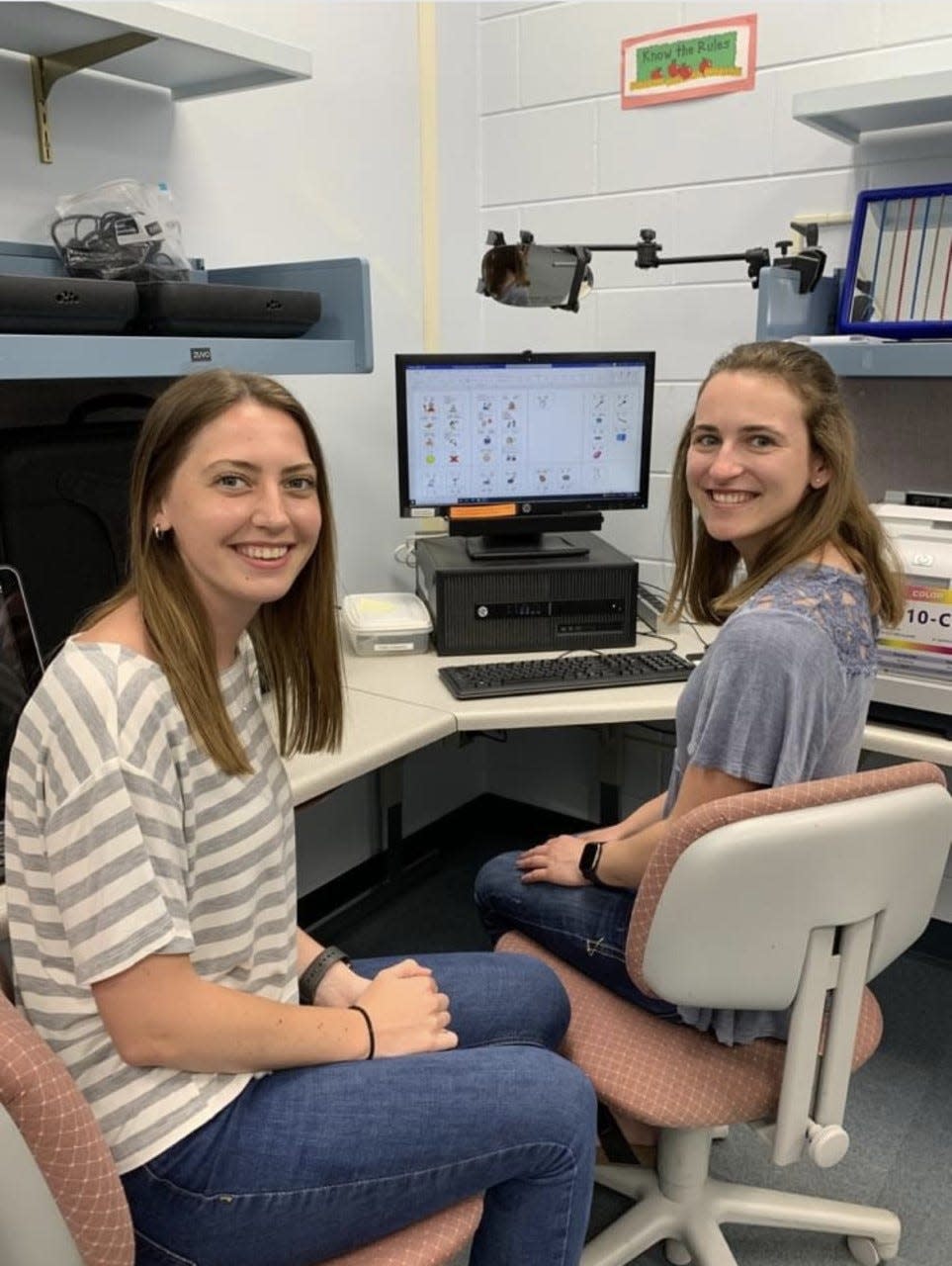UWSP students, professor create 'refugee dictionary' to help families overcome language barrier

STEVENS POINT – When a friend posted on social media this spring that they would soon be hosting a family from the Ukraine and it would be useful to have a dictionary to help them overcome the language barrier, Pam Terrell set out to help.
Terrell, a professor at the University of Wisconsin-Stevens Point, reached out to graduate students Morgan Knutson and Breanna Wolter at the end of March and by mid-May, a "refugee dictionary" was ready for action.
The dictionary includes around 150 words translated into six languages, including Ukrainian, and pictures for each word.
The project was a collaboration among people in several different countries. Terrell's friend, who lives in the Netherlands, came up with a list of the words that the refugee family staying with her would use.
“They came up with (a set of questions, phrases and vocabulary) based on real-life experiences of what were things that the refugees needed to communicate," Terrell said. "Everything from paperwork, issues about documentation, things related to child care, things related to finding a job, cooking, household tasks, running errands, really basic kinds of things.”
Another friend, a linguist living in Germany, offered to translate the words into six languages: Ukrainian, English, French, German, Dutch and Russian.
Knutson and Wolter, who both work in the university's Speech, Language and Hearing Clinic, added pictures to the dictionary. They matched the words to illustrations from Boardmaker, a communication tool that uses images and written words to help nonverbal people communicate.
“The easy (phrases), like 'good morning,' were pretty straightforward to find pictures. Sometimes there was more than one, so we just had to pick a phrase. But for the most part, I think it was relatively easy to get a picture,” Knutson said. “Once we got it all figured out on how to get the translations onto the software, it didn't take very long.”
Terrell said the dictionary was well-received by the Ukrainian family and they found it helpful.
While there are no plans to mass produce the dictionary, if there is someone who could benefit from a tool like this, they can contact Terrell at pterrell@uwsp.edu.
“I was excited that I got to be a part of something that was even bigger than this program or university," Wolter said. "I don't know how many people it's reaching but we can help all those different people."
MORE NEWS: Which Central Wisconsin school districts pay teachers the most, on average?
MORE NEWS: As school supply prices increase, Central Wisconsin programs see spike in requests for help
Emalyn Muzzy is a reporter covering Central Wisconsin. You can contact her at Emuzzy@gannett.com or follow her on Twitter @EmalynMuzzy.
This article originally appeared on Stevens Point Journal: UW Stevens Point professor and students create refugee dictionary

